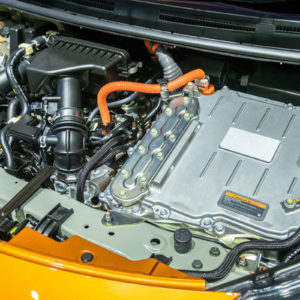In 2021, a TikTok video went viral featuring a truck that deliberately blew a cloud of thick black exhaust fumes into a busy restaurant in Texas. The truck in that video was modified to make it capable of blowing heavy black fumes.
This widely circulated TikTok video reminded most viewers of the contentious nature of “rolling coal” and its repercussions. But is a rolling coal modification considered illegal?
What Is Rolling Coal?
Rolling coal refers to the practice of modifying a truck, allowing it to pump more diesel to the engine than it can handle. This modification causes a vehicle to emit sooty black fumes.
Originally, this modification was only popular in truck-based motorsport. However, it now made its way to regular trucks that are used on public roads.
Why Do Some People Modify Their Trucks to Produce Excessive Smoke?

This practice is sometimes used as a form of anti-environmental protest. The drivers who engage in these actions are called coal rollers. They intentionally target Teslas, Priuses, and other electric or hybrid vehicles. These protesters intend to belittle or mock these eco-friendly models.
Some owners do this modification to attract attention and show off to their friends. This act might also be perceived as a form of dominance within certain circles in the automotive industry.
Others modify their vehicles to emit excessive smoke as a form of discontent or as a way to irritate other people. They usually target cyclists or pedestrians whom they perceive as intruding on their road space.
Additionally, some drivers do this modification to enhance their truck’s acceleration and speed. During the modification, a large amount of fuel is injected into the engine’s cylinders, potentially enhancing a vehicle’s acceleration and speed.
How Is a Rolling Coal Modification Done?
To make a truck blow a lot of black fumes, a large amount of fuel must be injected into the engine’s cylinders. The emission control devices located further down the exhaust system must also be bypassed or removed.
Professionals who perform this type of modification will also need to flick a switch connected to the vehicle’s engine control unit (ECU). You also need to program the powertrain control module (PCM) to dump fuel when the throttle is pressed hard. This will make the air-fuel ratio extremely rich, creating more soot.
The ride’s exhaust gas recirculation (EGR) valve will also be bypassed using aftermarket kits. Another crucial component, the catalytic converter, will also be removed to completely take away emissions control.
Lastly, straight-piped “smoke stacks” can also be installed behind the truck’s cabin or as tubes protruding from the bonnet just to make sure that the exhaust gasses won’t immediately dilute after combustion.
Is Rolling Coal Bad for the Environment?
Yes. A truck modified to roll coal tends to pollute the air much worse than a regular diesel truck.
According to a report released by the Environmental Protection Agency (EPA), over half a million diesel pickups have been producing 9 million trucks’ worth of excess emissions because of aftermarket modifications like rolling coal.

The trucks in this study were able to release 570,000 tons of nitrogen dioxide into the air over their lifetime. These illegally modified trucks also gave out 5,000 extra tons of industrial soot. It’s important to note that industrial soot causes many respiratory diseases.
Is Rolling Coal Illegal?
Yes. Under the Clean Air Act, tampering with a vehicle’s emission control systems and selling tampering tools is considered illegal. Aftermarket modifications that aim to disable emissions control technology are not allowed under the law.
However, even if there is a law that prohibits rolling coal, enforcing this law can be difficult. Only a few states have specific laws that prohibit rolling coal. These states include Maine, Utah, New Jersey, Maryland, Colorado, Connecticut, and California.
Can a Company Be Fined for Selling Rolling Coal Devices?
The EPA is responsible for investigating aftermarket technology that violates the Clean Air Act. A lot of brands that sell these types of aftermarket mods have been hit with big fines.
In 2023, the Department of Justice (DOJ) also sued a known e-commerce platform for selling these types of aftermarket modifications. However, the e-commerce giant denied the allegations and said it has blocked 99.9% of the products mentioned in the DOJ lawsuit.
Other Car Modifications That Can Be Considered Illegal
Before doing anything to your vehicle, make sure that the mods you plan on doing are legal in your state.
Aside from rolling coal, a popular aftermarket modification called “the Carolina squat” can be illegal in some states. This modification can give your vehicle a distinctive slanted appearance. Unfortunately, this modification can reduce the driver’s view of the road. It can also compromise your vehicle’s suspension, braking, and steering systems.
Other illegal modifications you may want to avoid include extra-long swangas, sky-high lift kits, and extreme negative camber.
Any information provided on this Website is for informational purposes only and is not intended to replace consultation with a professional mechanic. The accuracy and timeliness of the information may change from the time of publication.


















